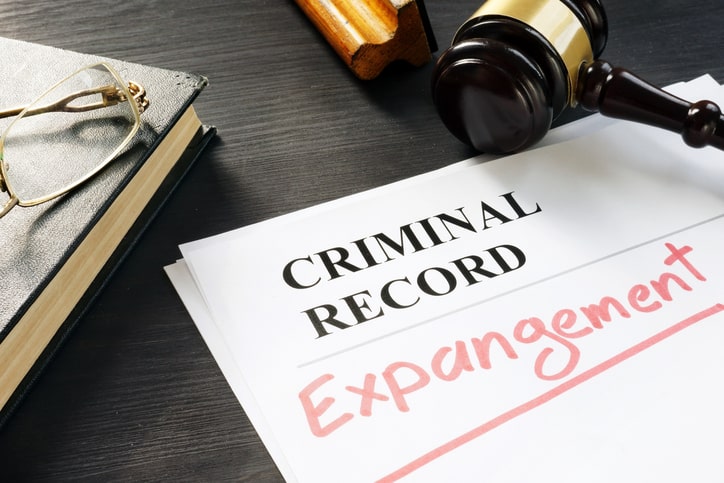Expungement is a legal process that allows Californians to clear their criminal records under certain circumstances. This process can offer a fresh start, making it easier to find employment, secure housing, and move forward.
However, the expungement process in California is complex and involves several eligibility criteria, filing requirements, and potential limitations. Here, our San Diego criminal defense attorney at the Griffin Law Office, APC breaks down the critical information you need about expungement in California, including who qualifies, how to apply, and what expungement can and cannot do for your record.

What Is Expungement in California?
Expungement is a legal process that removes or dismisses a conviction from an individual’s criminal record. Under California Penal Code 1203.4, individuals who have completed probation or met other criteria may be eligible to petition for expungement. If granted, the court reopens the case, withdraws the guilty or no contest plea, and dismisses the case.
The result is that the conviction no longer appears as a “guilty” judgment on your record.
What Are the Benefits of Expungement in California?
The primary benefit of expungement is the ability to legally state that you have not been convicted of a crime in most situations.
That includes:
- Employment Applications: You can lawfully state that you have no convictions on job applications, increasing your chances of securing employment.
- Professional Licensing: Expungement can help obtain or maintain professional licenses, though some licensing boards may still consider expunged convictions.
- Housing Opportunities: Expungement can improve your chances of housing approval, as landlords often conduct background checks.
However, it’s important to note that deleted records may still be visible in certain situations, such as in immigration matters, law enforcement investigations, and when seeking public office.
Who Is Eligible for Expungement in California?
Eligibility for expungement in California depends on several factors, including the type of offense, whether probation was completed, and whether any new criminal offenses have been committed since the conviction.
Here’s a breakdown of eligibility requirements:
- Completion of Probation
In most cases, you must have completed all terms of probation, including paying fines, attending counseling, or completing community service. If you were not sentenced to probation, you typically must wait one year from the date of conviction to apply for expungement.
- No New Criminal Convictions
You must not have been convicted of new offenses during probation or while waiting for expungement.
- Eligible Offenses
Most misdemeanors and some felonies can be expunged.
However, certain offenses are ineligible for expungement, such as:
- Serious sex offenses involving minors.
- Specific violent felonies.
- Some DUI-related offenses.
In cases where a felony is eligible for reduction to a misdemeanor under Penal Code 17(b), you may be able to have the felony reduced first, making it eligible for expungement.
How to Apply for Expungement in California
The expungement process involves several steps, each requiring attention to detail and adherence to legal requirements.
That includes:
- Filing a Petition for Dismissal
You must file a Petition for Dismissal (Form CR-180) with the court where you were convicted. This form must detail why you believe expungement is appropriate based on factors such as completing probation and maintaining a clean record.
- Attending a Court Hearing
In some cases, the court may schedule a hearing where you must appear to present your case for expungement. This hearing is an opportunity to demonstrate rehabilitation and explain why expungement would be beneficial.
- Waiting for the Court’s Decision
The court will decide after reviewing the petition and any evidence presented at the hearing. If the petition is granted, the conviction will be dismissed, and you will no longer be considered “guilty” of the offense.
- Checking for Errors
After expungement is granted, verifying that the conviction has been removed from your criminal record is essential. You can request a copy of your criminal record to ensure accuracy.
What California Expungement Does Not Do
While expungement offers many benefits, it’s essential to understand its limitations:
- It Does Not Restore Gun Rights: If you lost your right to own or possess firearms due to a felony conviction, expungement alone will not restore this right.
- It Does Not Seal or Destroy Records: Expungement removes the conviction from your public record but does not seal or destroy all case records. Law enforcement and certain agencies may still have access to expunged records.
- It Does Not Eliminate the Requirement to Register as a Sex Offender: If you were convicted of an offense requiring sex offender registration, expungement will not relieve you of this requirement.
- It May Not Prevent Deportation for Non-Citizens: While expungement can help in some immigration matters, it does not automatically prevent deportation or other immigration consequences.
Why You Need an Experienced San Diego Expungement Attorney
The expungement process in California can be complex and challenging to navigate on your own. Having an experienced San Diego criminal defense attorney by your side can increase your chances of a successful expungement by:
- Evaluating Your Eligibility: Our attorney can review your record and determine whether you meet the criteria for expungement.
- Filing Accurate and Complete Petitions: Errors in the petition can delay or jeopardize the expungement process, making accurate filing essential.
- Advocating for You in Court: If a hearing is required, our skilled attorney can present your case, demonstrating your rehabilitation and the benefits of expungement.
Contact Our Attorney at Griffin Law Office, APC Today
Expungement can open the door to better job opportunities, housing, and a brighter future. Don’t wait to explore your options if you believe you may be eligible for expungement in California. At the Griffin Law Office, APC we understand the impact of a criminal record and are committed to helping you achieve a fresh start. Call 619-269-2131 to speak with our skilled San Diego criminal defense attorney today, or contact us online.













